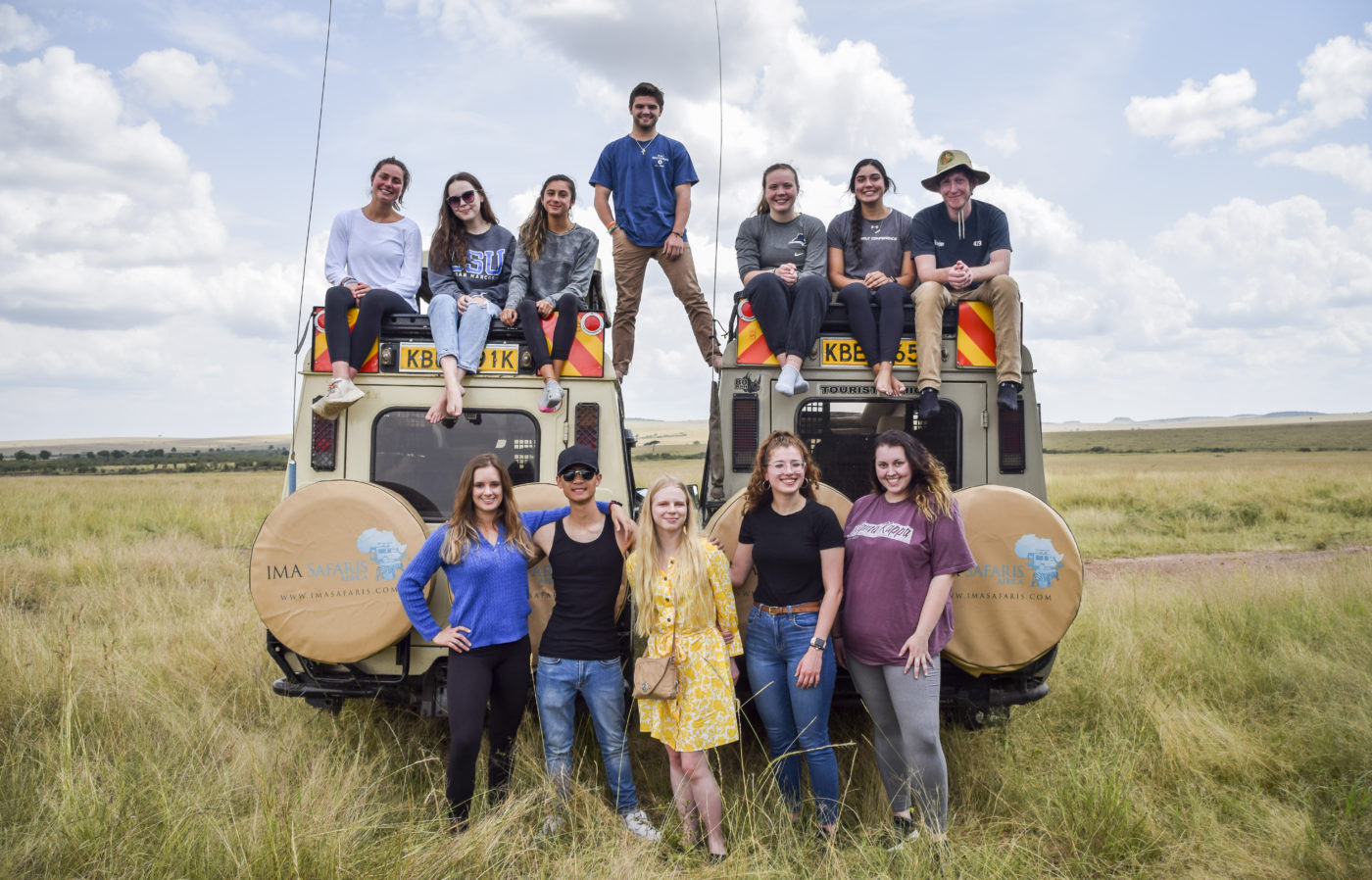It’s Tempting to Go Solo—But Is It Smart?
The internet makes the idea of planning your own overseas internship look easy. A few emails, a hospital contact, maybe a volunteer clinic that says yes—and suddenly, you’ve “built your own” clinical experience abroad. No program fees, no middleman, just pure immersion… right?
Not exactly.
While it may seem cost-effective or even more “authentic” to organize your global health experience independently, students who’ve been through both paths will tell you there’s more to consider than flights and paperwork. Going solo can work. But it also carries significant risks, legal limitations, ethical concerns, and lost opportunities. For many students, choosing a structured medical internship through an established organization like International Medical Aid isn’t just safer—it leads to a deeper, more impactful experience.
Let’s take a look at the real pros and cons of each approach, highlighting what students often overlook in their quest for clinical hours abroad.
Let’s Talk About Safety, First and Always
Whether you’re pre-med, pre-PA, pre-dental, or nursing, traveling abroad to shadow or assist in clinical care is a serious undertaking. You’ll be in a foreign environment, often in a country where healthcare systems are strained, infrastructure is inconsistent, and emergencies, both personal and medical, can arise unexpectedly.
When you go solo, you are responsible for your own safety. That includes your housing, your transport, your access to care if you become sick or injured, your understanding of local laws, and your ability to contact someone who can help in a crisis. Even with travel insurance, you’re still largely on your own unless you have local contacts willing to support you 24/7.
By contrast, joining a program like IMA means your accommodations are vetted, your transportation is handled, your meals are covered, and your safety is continuously monitored by an on-the-ground support team. That doesn’t just reduce stress. It gives you room to focus on the work and the learning.
What About Hospital Access?
This is where many solo travelers hit a wall. Just because you find a hospital and send an email doesn’t mean you’ll be allowed to observe care. In fact, most hospitals abroad do not accept direct student placements without a formal agreement or legal partnership in place.
Even if someone says yes, that “yes” may not come with proper onboarding, supervision, or understanding of what a foreign intern can legally do. Without a structured program behind you, you may spend weeks waiting to be allowed in, or worse, you might observe unethical practices or be asked to participate in ways that violate both local laws and U.S. clinical guidelines.
Established programs like those offered by International Medical Aid have years-long partnerships with hospitals and clinics in East Africa and South America. They’ve developed protocols for intern participation, provide orientation for each department, and ensure that you’re never placed in a situation that puts your career, or the patients in jeopardy.
Ethical Considerations - You’re a Student, Not a Provider
One of the most misunderstood aspects of going solo is that you might be expected or allowed to do more than you should. This often comes from good intentions. A rural clinic needs help. A patient is waiting. You’re standing there, and someone hands you a syringe or asks you to close a wound. You want to help. You want to say yes.
But these situations are dangerous for everyone involved.
Without training, credentials, or legal authorization, participating in care crosses a line. Not only could you cause harm, but you could face professional consequences later, especially if you report or include those experiences in your applications. Licensing boards and admissions committees care deeply about ethics and scope of practice.
With a structured program, these lines are clearly drawn. You shadow, observe, ask questions, and support, never perform. That distinction matters. And it’s one of the most critical differences between going solo and going with an organization.
Preparing for a Responsible Global Health Experience
Before embarking on an overseas medical internship, thorough preparation is essential to ensure a safe, ethical, and meaningful experience. Understanding global healthcare systems, as outlined by the World Health Organization, helps you appreciate the complexities of the environments you’ll enter. Prioritizing travel health and safety, as advised by the CDC Travelers’ Health, equips you to manage risks like illness or emergencies abroad. Additionally, adhering to ethical guidelines, such as those in the AMA Code of Medical Ethics, ensures you respect your role as a student observer, avoiding actions that could harm patients or jeopardize your future career. Whether you go solo or with a structured program like IMA, these resources provide a foundation for responsible global health engagement.
Mentorship and Structured Learning: The Missing Piece of Going Solo
Learning happens best when it’s supported. Without a supervisor who understands your background and goals, it’s hard to grow. When you go solo, you’re dependent on whatever attention local staff can spare, and often, they’re too busy to teach.
Programs offered by IMA build mentorship into your internship. In Mombasa and Cusco, you’ll have regular check-ins, debriefs, clinical discussions, and reflection sessions. Physicians and public health professionals are aware that you’re there to learn. They explain procedures, translate conversations, and contextualize what you’re seeing in terms of system-level challenges. That kind of support transforms your experience from observational to developmental.
The Logistics You Don’t Think About Until It’s Too Late
Going abroad is never just about the internship. You need a visa. You need documentation. You need local orientation, language support, cultural sensitivity training, and someone to help when your flight is delayed or your baggage disappears. These details add up—and they can overwhelm even the most organized traveler.
IMA handles all of this for you. From your arrival at the airport to your return home, every logistical element is accounted for. That doesn’t just make your life easier—it allows you to be fully present during your clinical hours. No scrambling for transportation. No negotiating rent with a landlord who doesn’t speak your language. No missed shifts because your bus didn’t arrive.
The Cost Myth - Is Solo Actually Cheaper?
Many students assume that building their own internship abroad is cheaper. And upfront, it might seem that way. But once you factor in housing, transportation, translation support, meals, emergency coverage, admin fees at foreign hospitals, and time lost dealing with unpredictable situations, the math shifts.
More importantly, you have to ask what you’re getting for your investment. When you go solo, you’re paying with time, stress, and the constant risk of being turned away, put at risk, or left unsupported. With a program like IMA, your fee guarantees access, supervision, education, safety, and post-internship support. You’re not just buying a placement. You’re investing in peace of mind and professional quality.
Admissions Committees Look at Structure and Scope
One of the questions students often overlook is: What will this experience look like on my application?
Admissions committees are trained to spot vague or problematic descriptions of clinical work abroad. If your story suggests you acted beyond your role, failed to follow ethical guidelines, or lacked supervision, it could hurt you more than it helps. Going through a recognized organization protects you from those missteps.
In contrast, students who intern with IMA are able to show clearly documented experience, structured hours, specialty exposure, and detailed learning outcomes. These internships are known among many medical, PA, and nursing schools. That reputation lends credibility to your story and helps you stand out for the right reasons.
Personal Growth, Cultural Immersion, and Community Engagement
Some of the richest parts of global internships happen outside the hospital. When you go solo, it can be hard to break into local communities. Without guidance, you might feel like a tourist observing from a distance but never truly integrating.
IMA integrates interns into the local culture in meaningful ways. In Cusco, you might join a health fair in a rural village or spend a morning helping with hygiene education at a school. In Mombasa, you may participate in maternal health outreach or support a vaccination campaign. These aren’t just field trips, they’re intentional, ethical engagements rooted in local partnerships.
They also help you see patients as people, not cases. You’ll understand their environment, their barriers to care, their traditions, and their resilience. That cultural awareness will stay with you long after the internship ends.
Personal Growth, Cultural Immersion, and Community Engagement
🧭 Additional Reading Admissions Strategy & Alternative Career Paths
FAQ: Going with an Organization vs. Going Solo
Is there ever a good reason to go solo?
If you have family in a country or are part of a university-led trip with formal agreements in place, solo might work. But in most cases, established programs offer better structure, safety, and value.
How do I know if an organization is legitimate?
Look for transparency, published reviews, specific site details, safety policies, and direct contact with staff. IMA, for instance, provides clear descriptions of its programs in Mombasa and Cusco, with detailed support systems and alumni reviews.
Will schools view structured internships as less “authentic”?
Most admissions committees prefer structured, ethical experiences. They want to know you followed scope-of-practice rules, received supervision, and gained insight—not just photos.
Can I still be independent within a structured program?
Absolutely. You’ll have your own rotations, personal time, and the freedom to reflect and grow. But you’ll also have a team behind you to support and guide your learning.
What happens if something goes wrong during my trip?
With a solo trip, you’re largely on your own. With an organization like IMA, support is immediate and comprehensive—from medical help to logistics, counseling, or relocation if needed.
Final Thoughts
Choosing between going solo or joining an organization for your overseas internship boils down to what you value most: independence or impact. While solo travel offers freedom, it often comes with logistical headaches, ethical risks, and missed learning opportunities.
Structured programs like the Global health Internships by International Medical Aid provide a balance combining safety, mentorship, and meaningful cultural engagement. For pre-med, pre-PA, or nursing students, the investment in a reputable program isn’t just about clinical hours; it’s about building a foundation of ethical practice, cultural humility, and professional growth that will resonate in your applications and career.





